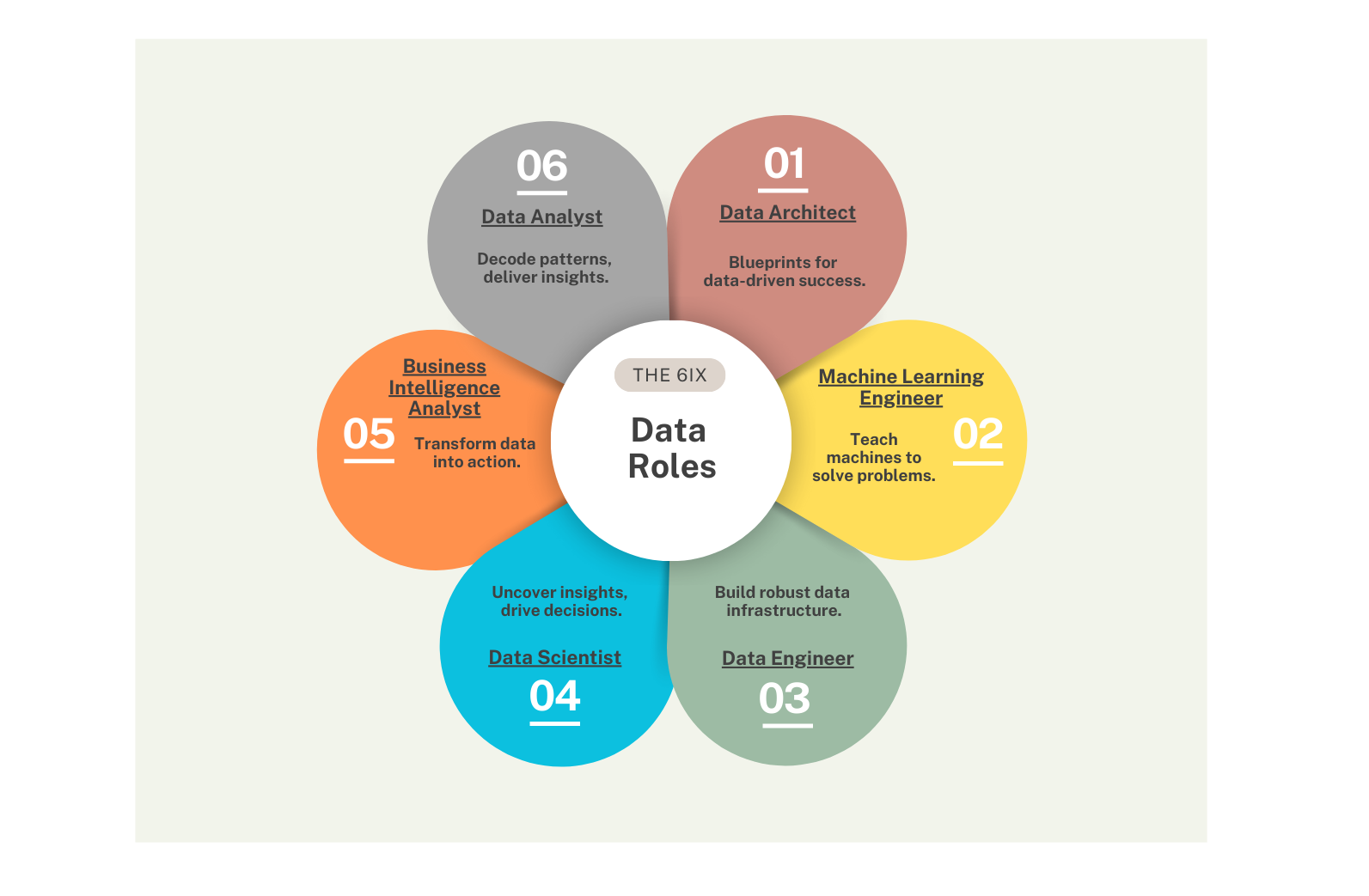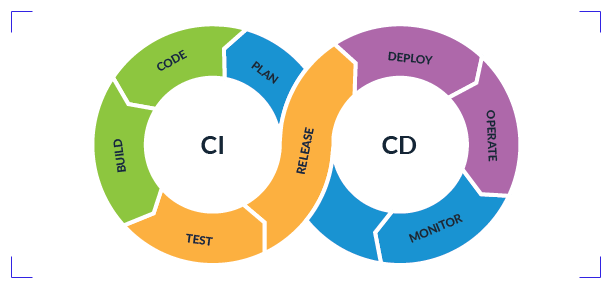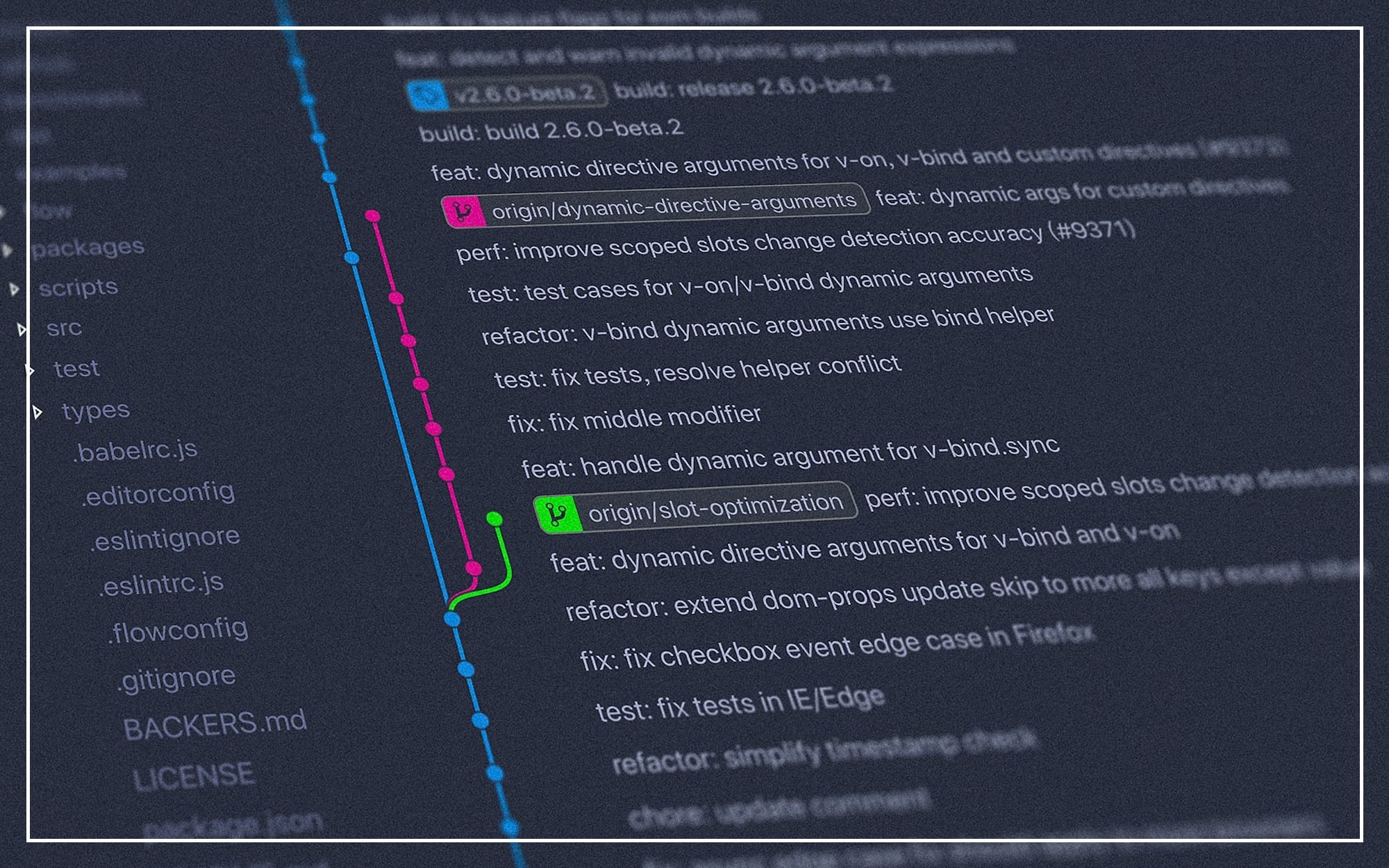On this page
Estimated reading time is 4 minutes and 29 seconds 🕒
Introduction
In today's data-driven world, organizations rely heavily on data professionals to extract insights, drive decision-making, and create value. The field of data has evolved rapidly, giving rise to various specialized roles, each with its own set of responsibilities and skills. In this blog post, we will be discussing the most common data roles, highlighting the key aspects of each role, pointing out the differences between them, and discussing learning paths, average salaries, and how to get started in this exciting field.
The Data Field
The data field encompasses collecting, storing, processing, analyzing, and interpreting vast amounts of structured and unstructured data. It involves leveraging various tools, technologies, and methodologies to extract meaningful insights and drive data-informed decision-making. The ultimate goal is to harness the power of data to solve complex problems, optimize processes, and create value for organizations across industries.
Data Roles and Responsibilities:

1. Data Architect:
- Key Points:
- Design and oversee the implementation of an organization's data architecture
- Develop data strategies, policies, and standards to ensure data integrity and consistency
- Collaborate with stakeholders to understand business requirements and design data solutions
- Evaluate and recommend technologies and tools for data management and integration
- Learning Path:
- Strong understanding of data modeling and database design principles
- Expertise in data warehousing, data lakes, and data integration technologies
- Knowledge of data governance and security best practices
- Familiarity with cloud data platforms (AWS, GCP, Azure)
- Average Salary: $130,000 - $180,000 per year
2. Machine Learning Engineer:
- Key Points:
- Design, develop, and deploy machine learning models and systems
- Optimize and scale machine learning algorithms for production
- Collaborate with data scientists and software engineers to integrate models into applications
- Monitor and maintain the performance of deployed models
- Learning Path:
- Strong programming skills (Python, Java, C++)
- Expertise in machine learning frameworks (TensorFlow, PyTorch)
- Knowledge of cloud platforms (AWS, GCP, Azure) and MLOps practices
- Understanding of software engineering principles and best practices
- Average Salary: $120,000 - $160,000 per year
3. Data Engineer:
- Key Points:
- Design, build, and maintain data infrastructure and pipelines
- Ensure data availability, scalability, and performance
- Integrate data from various sources and ensure data quality
- Collaborate with data scientists and analysts to support their data needs
- Learning Path:
- Strong programming skills (Python, Java, Scala)
- Expertise in databases (SQL, NoSQL)
- Knowledge of big data technologies (Hadoop, Spark)
- Familiarity with data warehousing and ETL processes
- Average Salary: $120,000 - $150,000 per year
4. Data Scientist:
- Key Points:
- Develop and apply advanced analytics and machine learning models
- Explore and analyze complex datasets to uncover insights
- Communicate findings and recommendations to stakeholders
- Collaborate with cross-functional teams to drive data-driven decision-making
- Learning Path:
- Strong mathematical and statistical background
- Proficiency in programming languages (Python, R)
- Knowledge of machine learning algorithms and frameworks
- Experience with data visualization and storytelling
- Average Salary: $100,000 - $130,000 per year
5. Business Intelligence (BI) Analyst:
- Key Points:
- Design and develop BI solutions to support business decision-making
- Create interactive dashboards, reports, and data visualizations
- Analyze and interpret complex business data to identify trends and insights
- Collaborate with stakeholders to understand their information needs and provide data-driven recommendations
- Learning Path:
- Strong analytical and problem-solving skills
- Proficiency in BI tools (Tableau, Power BI, QlikView)
- Knowledge of SQL and data modeling concepts
- Understanding of business domains and industry-specific metrics
- Average Salary: $80,000 - $110,000 per year
6. Data Analyst:
- Key Points:
- Collect, process, and analyze data to generate actionable insights
- Create reports, dashboards, and visualizations to communicate findings
- Identify trends, patterns, and opportunities for improvement
- Collaborate with business stakeholders to understand their data needs
- Learning Path:
- Strong analytical and problem-solving skills
- Proficiency in SQL and data manipulation
- Knowledge of data visualization tools (Tableau, Power BI)
- Understanding of statistical concepts and techniques
- Average Salary: $70,000 - $90,000 per year
Getting Started:
To embark on a career in the data field, consider the following steps:
- Acquire foundational knowledge:
- Enroll in online courses, bootcamps, or degree programs to gain a solid understanding of data concepts, tools, and techniques.
- Focus on learning programming languages such as Python, SQL, and R, which are widely used in the data field.
- Understand statistical concepts, data structures, and algorithms.
- Explore data visualization tools like Tableau, Power BI, or D3.js to effectively communicate insights.
- Gain hands-on experience:
- Work on personal projects to apply your learning and develop practical skills.
- Participate in data-related competitions on platforms like Kaggle or DrivenData to tackle real-world challenges.
- Seek internships or entry-level positions in data-focused organizations to gain professional experience.
- Contribute to open-source projects related to data analytics, machine learning, or data engineering.
- Build a portfolio:
- Create a portfolio website or repository to showcase your projects, code samples, and case studies.
- Document your projects thoroughly, explaining the problem statement, methodology, and results.
- Highlight your technical skills, tools used, and the impact of your work.
- Ensure your portfolio is easily accessible and well-presented to potential employers or clients.
- Network and engage with the community:
- Attend industry events, conferences, and meetups to connect with data professionals and stay updated on the latest trends.
- Join online communities and forums like Kaggle or DataCamp, to engage in discussions and seek guidance.
- Follow influential data scientists, thought leaders, and organizations on social media platforms to stay informed about advancements in the field.
- Participate in hackathons or data-focused initiatives to collaborate with like-minded individuals and expand your network.
- Continuously upskill and stay updated:
- Stay curious and proactive in learning new tools, techniques, and emerging technologies in the data field.
- Pursue advanced certifications or specializations to deepen your expertise in specific areas such as machine learning, big data, or cloud computing.
- Read research papers, blogs, and industry publications to stay informed about the latest advancements and best practices.
- Engage in continuous learning through online courses, workshops, or self-directed projects to expand your skill set.
Conclusion
The data field offers diverse and rewarding career opportunities for individuals passionate about leveraging data to drive insights and solutions. By understanding the different roles, responsibilities, and learning paths, aspiring data professionals can make informed decisions about their career trajectories. Whether you choose to become a data architect, data engineer, data scientist, data analyst, machine learning engineer, or BI analyst, the key is to continuously learn, adapt, and stay curious in this ever-evolving field.
Call to Action
Ready to embark on an exciting career in the data field? Take the first step today by exploring online resources, enrolling in courses, and connecting with data professionals in your network. Don't miss out on the opportunity to be at the forefront of the data revolution!






